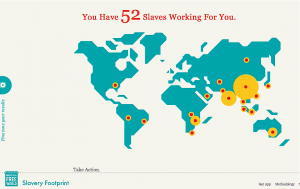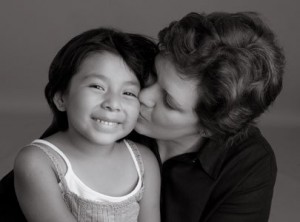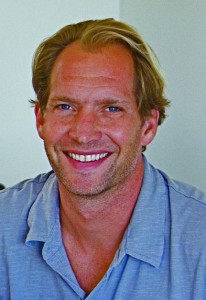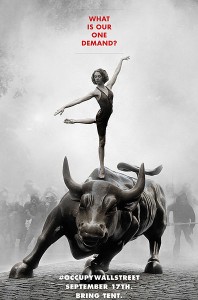human
“Jesus was a radical who welcomed everyone and criticized powerful leaders who oppressed the poor. Jesus was crucified because he was a political threat. But the Apostle Paul was a conservative missionary who misunderstood Jesus and was anti-woman, pro-slavery, and anti-gay.”
That seems to sum up how many progressive Christians view Paul. But are such views justified by the biblical record? Or are there other ways to understand the zealous Pharisee who became an apostle to the Gentiles?
IN THE EARLY 1970s, I came across an article on Jesus’ women disciples in the Christian social justice magazine The Other Side. I was shocked. I had attended church all my life; how come I never noticed those women disciples?
What I didn’t know then was that a renewed “search for the historical Jesus” was underway. Applying the ever-developing insights of sociology, anthropology, and archaeology, scholars were investigating the socio-economic and political aspects of life in first century Palestine. How did Jesus fit into his historical context? As a peasant healer, how did he challenge the Roman occupation and their clients, the chief priests at the temple in Jerusalem?
It takes a while for new insights from biblical research to reach lay Christians. This is further delayed if church leaders are suspicious of intellectual elitism and fearful some of their parishioners might “lose their faith.”
From the official statement by #OccupyWallStreet: "As one people, united, we acknowledge the reality: that the future of the human race requires the cooperation of its members; that our system must protect our rights, and upon corruption of that system, it is up to the individuals to protect their own rights, and those of their neighbors; that a democratic government derives its just power from the people, but corporations do not seek consent to extract wealth from the people and the Earth; and that no true democracy is attainable when the process is determined by economic power."
 The Slavery Footprint campaign launched Thursday (Sept. 22), which also happened to have been the 149th anniversary of the Emancipation Proclamation, with the goal of personalizing "the issue of modern slavery by providing people with an assessment of just how much their lifestyle depends on forced labor -- and the steps they can immediately take to help end it."
The Slavery Footprint campaign launched Thursday (Sept. 22), which also happened to have been the 149th anniversary of the Emancipation Proclamation, with the goal of personalizing "the issue of modern slavery by providing people with an assessment of just how much their lifestyle depends on forced labor -- and the steps they can immediately take to help end it."
By following this LINK I was able to plug in some basic information about myself and my lifestyle -- where do I live, do I own or rent, how many children do I have, have many diamonds/leather shoes/electronic gizmos do I own, what are my eating habits, what's in my medicine cabinet, etc., -- and in just a few minutes received the upsetting news that, according to the Slavery Footprint campaigns diagnostics, 52 slaves "work for me."
 Could my mission really be confined to seeking the best for the children to whom I gave birth? Or, as a Christian, should I define "family" more broadly? I'd see images of women and children suffering around the world, and those puzzling verses returned to my mind. Maybe, instead of obsessing over the happiness of my babies, I should stick my head out of the window, so to speak, look around, and ask, "Who is my family?"
Could my mission really be confined to seeking the best for the children to whom I gave birth? Or, as a Christian, should I define "family" more broadly? I'd see images of women and children suffering around the world, and those puzzling verses returned to my mind. Maybe, instead of obsessing over the happiness of my babies, I should stick my head out of the window, so to speak, look around, and ask, "Who is my family?"
It didn't feel right to simply shrug my shoulders and blithely accept my good fortune as compared to that of people born into extreme poverty. I'd buy my kids their new school clothes and shoes and then think of mothers who did not have the resources to provide their children with even one meal a day. I'd wonder: what's the connection between us? Does the fact that $10 malaria nets in African countries save whole families have anything to do with my family buying a new flat-screen TV? Should it? Is there any connection between me, a suburban, middle class mom, and women around the world?
Sojourners has always tried to understand and advocate for "biblical politics." But what does that mean now, especially as we approach another major election?
I was talking the other day to a Christian leader who has given his life to working with the poor. His approach is very grassroots -- he lives in a poor, virtually all-minority community and provides basic services for low-income people. He said, "If you work with and for the poor, you inevitably run into injustice." In other words, poverty isn't caused by accident. There are unjust systems and structures that create and perpetuate poverty and human suffering. And service alone is never enough; working to change both the attitudes and institutional arrangements that cause poverty is required.
When our ideas about nature come primarily from Sierra Club calendars or selected snippets from Thoreau, an east coast earthquake and monster hurricane (in the same week) are powerful wake-up calls.
We modern urban dwellers and suburbanites like our nature contained and manageable: a nice hike in the woods; a pretty sunset on the drive home; a lush, green lawn (chemically-induced, alas)
Sometimes we like nature so much we decide to worship it -- or to make it the medium for our worship of God or the "higher power" we think might be up there, out there, presiding over it all. We've been wounded by organized religion, perhaps, disgusted by its hierarchies and hypocrisies. "I can worship God on a mountaintop," we decide. (Or -- conveniently, happily -- on the golf course).
Rise of the Planet of the Apes is a surprising addition to the typical summer blockbuster canon -- for one thing, it manages to entertain and challenge, without resorting to gratuitous violence to make its point. But there's a deeper subtext that is even more unexpected -- for this is a story in which we start to lose.
It was fashionable in the late 1960s and early '70s for science fiction films to attempt to out-dystopia each other -- see for example the notion in Soylent Green that post-industrial humanity snacks on itself to survive, the suggestion that only robots can be trusted to look after creation in Silent Running, and the climactic revelation in the original Planet of the Apes that a few generations from now, the nuclear arms race will end in mutually assured destruction. All these point to a simple philosophical idea: that humans cannot be trusted to care for ourselves or the planet we steward.
It was over in less than a minute. Three miles below the surface of the earth near a town in Virginia called Mineral, a fault line shifted. As a result, a 5.8 magnitude earthquake was felt from Georgia to New England and as far west as Detroit. The National Cathedral lost several stone spires, the Washington Monument cracked, and Sojourners' office was closed for the afternoon, as our building was checked for structural damage.
Tectonic plates move beneath our feet in the part of the globe that scientists refer to as the lithosphere. Over the course of a year, an average plate will move as little as 3 to 6 centimeters. The speed of their movement is 10,000 times slower than the hour hand on a clock and even slower than the rate of growth of human hair. For decades, sometimes centuries or millennia, a plate's movement might go almost entirely unnoticed. Then, in less than a minute, the world shakes and everything changes.
When it comes to homeless youth the facts are simple, services in the City of Chicago are falling far behind the need. A survey of Chicago public school students from 2009/10 revealed 3,682 children who identified as being homeless and in need of shelter. In contrast there are approximately 189 beds for homeless youth (ages 18-25) funded by the City of Chicago. In 2010, 4,775 homeless youth were turned away from youth shelters for lack of room. To be clear, that was 4,775 instances where homeless youth sought shelter and were unable to find it. To date there are only 10 percent of the beds needed to provide safe shelter and supportive programs for the estimated number of Chicago's homeless youth.
Hidden Battles is a 65-minute documentary which follows a female Sandinista rebel, an Israeli officer, a Palestinian freedom fighter, and two American soldiers as they come to terms with their combat experiences. The film offers unique insight and hope into the internal conflicts that human beings around the world continue to face long after they have left the battlefield.
The documentary listens to the stories of these former soldiers as they reconcile what it means to have killed another human. A Vietnam veteran recalls that when he first killed, he was gripped by the feeling that he "did something -- literally against God." Watch this film and see how these veterans have fought to overcome. Each soldier deals with killing in his or her own unique way. Hidden Battles shows five ways in which this act is integrated into five different lives. Ultimately these stories testify to the resilience of the human spirit and hopefulness for the future.
There's something special about the bookends of our lifetimes. I became a first-time father seven months ago and a hospice chaplain just one month past. Growing up and growing old, especially the first and last months of our lives, can be surprisingly similar experiences.
I fed my daughter sweet potatoes for the first time last night. Introducing her to solid foods has been a treat. While we're trying our best to teach her the sign language words for "food", "more", and " all done", Robin still finds closed-mouth grumble-whines to be the best way to let us know she thinks sweet potatoes aren't all that hot. Another subtly nuanced whine might instead wonder, "You don't happen to have any more mashed banana or applesauce around, would you?" My attempt to turn the filled spoon into an acrobatic and roaring airplane met with scant success.
He put before them another parable: "The kingdom of heaven is like a mustard seed that someone took and sowed in his field; it is the smallest of all the seeds, but when it has grown it is the greatest of shrubs and becomes a tree, so that the birds of the air come and make nests in its branches." He told them another parable: "The kingdom of heaven is like yeast that a woman took and mixed in with three measures of flour until all of it was leavened."
The kingdom of heaven is like treasure hidden in a field, which someone found and hid; then in his joy he goes and sells all that he has and buys that field. Again, the kingdom of heaven is like a merchant in search of fine pearls; on finding one pearl of great value, he went and sold all that he had and bought it.
--Excerpts from Matthew 13
It's been a rough weekend. Watching the devastation that the combination of mental illness and fundamentalism brought to the people of Norway. Watching what the combination of drug addiction and fame brought to a talented singer, who, like so many who went before her, is now dead at the age of 27. Something they don't tell you when you get clean and sober is that if, by the grace of God, you manage to stay that way -- you get a much better life -- but year after year you also watch people you love die of the same disease. So yesterday when I heard that Amy Winehouse had been found dead in her home, it brought me back to nine years ago when my dear friend PJ was also found dead in his home.

So as I watched the final Hogwarts Express depart from Platform 9¾ in Harry Potter and the Deathly Hallows, Part II this past weekend (slightly teary-eyed, I confess), I started to wonder: What might it sound like to pray in the language of Harry Potter -- language that clearly resonates with folks around the world? Would it be cheesy? Probably. Profane? Perhaps. But I figured the God who relied on earthly parables about wineskins and fig trees to explain the Kingdom would understand.
My favorite characters in The Lord of the Rings are the Ents -- an ancient race of giant living, talking, breathing trees in J.R.R. Tolkien's fictional land, Middle Earth. I have a little confession to make: Whenever I hear a reading from Isaiah 55 where it says, "The mountains and hills before you shall burst into song and all the trees of the field shall clap their hands," I always picture the Giant Ents from The Lord of the Rings. And then I picture these clapping trees from Isaiah holding little Hobbits in their branch arms in what ends up a willful conflation of Middle Earth and Major Prophet.
As I celebrated my freedom on Independence Day, I found myself considering the promise that my country boasts about: "liberty and justice for all." In particular I was struck by the many freedoms uniquely absent from the lives of so many American workers.
Our country is in the midst of a clash between two competing moral visions. It is not, as we have known in recent history, a traditional fight between Republicans and Democrats. It is a conflict between those who believe in the common good and those who believe individual good is the only good.


